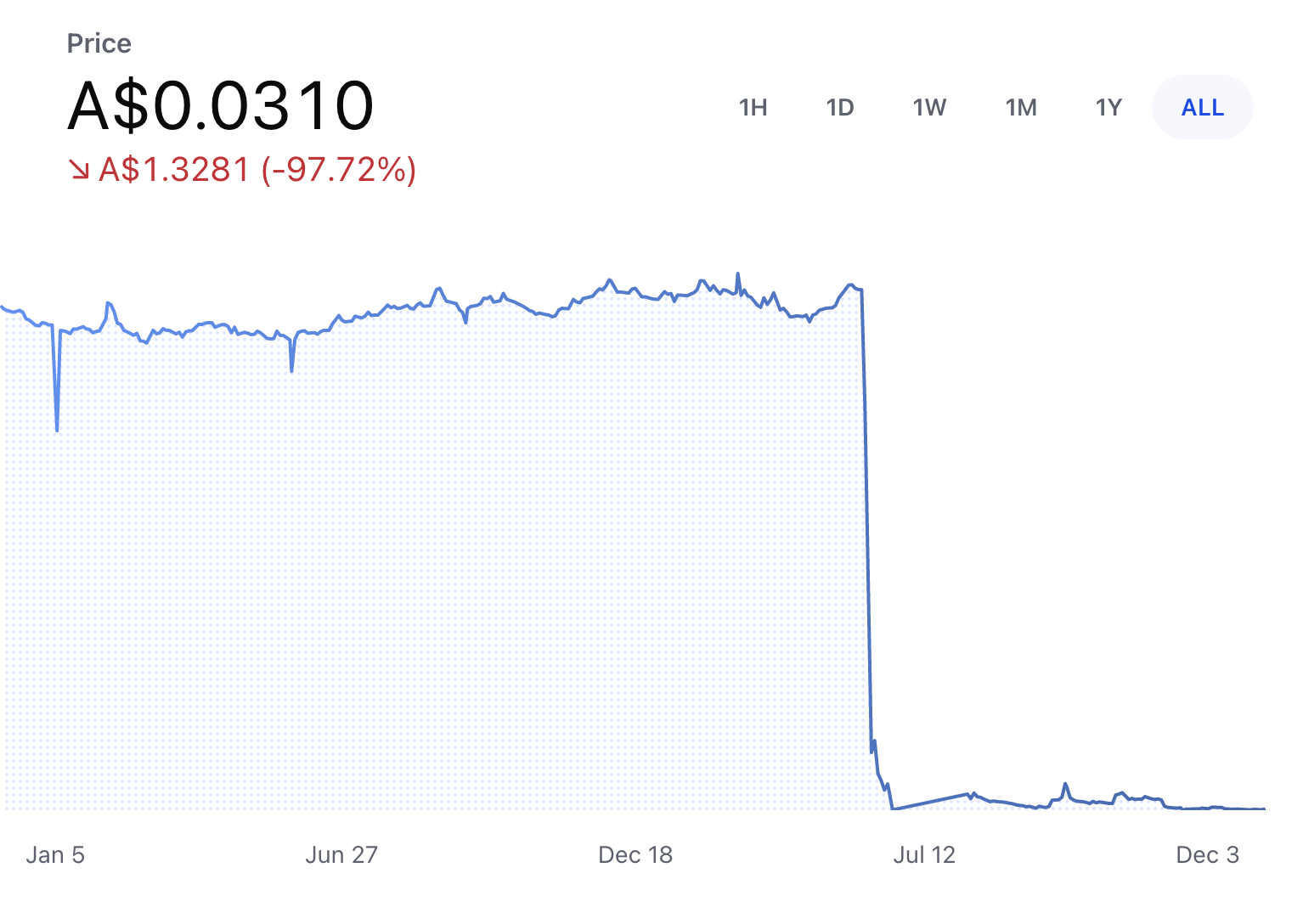The year that crypto died
A new year is now well and truly upon us, and with that comes the opportunity to look back on some of the key themes of 2022. One major trend from this period of time has been the bursting of the crypto bubble, in an 'I told you so' moment for a great number of market experts.
But there's far more to unpack from this trend than retail investors getting in over their heads; from widespread fraud, to the mistakes of some of the largest players in finance, the fall of crypto in 2022 serves as a microcosm for the broader financial markets.
In this wire, I'll discuss the biggest events that took place as crypto markets unwound throughout the year, as well as the lessons investors can learn, regardless of their preferred asset class.
Signs of the top
Our story starts in the final months of 2021 when 🚀 emojis and the phrase "to the moon" were inescapable. Although not the only asset class to peak at this point in time, the crypto world was particularly wild.
High school classmates were boasting online about spending thousands on freshly minted NFTs, a bitcoin cost about as much as an A-class Mercedes, and all around the world viewers watched Elon Musk host SNL with bated breath, praying that a reference to 'dogecoin' would make them rich.
This period was the peak of FOMO, and it wasn’t just retail investors getting caught out. Big-name banks like Morgan Stanley (NASDAQ: MS) participated in funding rounds for crypto-based organisations like NYDG. Even Australian names like Commonwealth Bank (ASX: CBA) were involved, betting on crypto firm Gemini to outperform.
Everything was going up, and everyone wanted a piece.
The height of scams and greed
"Be greedy when others are fearful, and fearful when others are greedy" - Warren Buffett
Perhaps the most famous quote in investing again proved itself true in the lead-up to 2022. Greed was palpable in the crypto markets, as scams, pump-and-dump schemes, and insider trading was rife.
One of the first mainstream examples of this occurred as early as mid-2020 with the Twitter accounts of many high-profile celebrities being hacked with similar messages to the following:

The relatively unregulated nature of crypto meant that these scams often succeeded, with around $100,000 of bitcoin sent to the above address.
Other events from this period of time included:
"Rugging" or "rug-pulling" became a verb, as various crypto projects were set up, only for founders to dump their tokens and abandon projects, leaving investors holding the bag.
"Pump and Dump" group chats expanding on many online forums, advertising opportunities to artificially inflate the price of small crypto coins, before dumping the assets and leaving with profits.
The Lesson: The traditional wisdom holds true, be fearful when others are greedy.
Not-so-stable stablecoins
One of the first major steps leading to the collapse in crypto markets was brought about by Terraform labs, founded by enigmatic billionaire Do Kwan. Terraform developed the Terra blockchain protocol, an algorithmic system for pegging a crypto-assets price at exactly US$1. This was extremely useful for liquidity in what was an otherwise volatile asset class.
The algorithms behind these "stablecoins" were fairly complex, but they can be thought of as similar to fixed-exchange-rate traditional currencies. Unfortunately, they also face the same risks as traditional fixed-rate currencies: liquidity attacks.
This came to pass when on the 7th of May 2022 over $2 billion dollars of assets were moved, and quickly liquidated on the Terra network. The algorithm could not manage the drop in liquidity, the price de-pegged from US$1, and the loss of confidence in the asset resulted in a death spiral to the current price at only a few cents.

To this day it's unclear if this event was a deliberate attack or just bad luck, but the result is the same: A great deal of users, many of whom were retail investors, lost huge amounts of their savings.
This process also broke the trust in one of the most important building blocks for the crypto economy, kicking off a slide in crypto asset valuations generally.
The Lesson: History doesn't repeat, but it rhymes.
Banks that aren't banks
A common theme in the bull-case for crypto has been a general distrust in traditional finance. It's no surprise that Bitcoin emerged in 2009, immediately after the GFC. Many users view the security of blockchain technology as an alternative to the existing banking system, and as such, it was only a matter of time before an organisation arose to capitalise on this view.
Alex Maschinsky and his organisation Celsius rose to prominence with their message of 'unbank yourself'. The premise was very simple, banks have monopolised finance, and don't give their customers a fair interest rate.
So how exactly did Celsius help clients to unbank themselves? They took deposits, and distributed loans on those deposits in order to generate a return.
You might then be asking, 'Is Celsius not then just a bank that uses crypto?'
Unfortunately, the answer is no, Celsius differed from banks in one key way:
It was entirely unregulated.
Promises were made to depositors, of interest rates greater than 15% per annum, while the loans were promised to be of the highest quality. When this inevitably turned out to be false, withdrawals were frozen and customers lost everything. Of course, the lack of regulation meant no insurance for depositors, so losses were unmitigated.
The lesson: If it sounds too good to be true...
Arresting the 'generous billionaire'

One of the final nails in the coffin for crypto markets in 2022 was the disaster that is and was FTX. Once known as 'The Generous Billionaire' Sam Bankman-Freid founded the second largest (at its peak) crypto exchange in the world, FTX.
Alongside a complex web of various other companies founded by 'SBF' as he's commonly known, FTX maintained over 5 million active users, with an average daily volume in 2021 of US$12.5 million. This all changed, however, when in November 2022 accusations emerged that FTX had been loaning sister company "Alameda Research" billions of dollars in customer funds.
Alameda proceeded to lose said funds by making bets on the crypto market, leaving FTX unable to recoup customer funds. Similar to Celsius, assets held with FTX and other crypto firms are generally not federally insured, so news of this caused mass withdrawals, and inevitably the collapse of FTX.
As of January 2023, SBF has been arrested and charged with wire fraud, conspiracy to commit money laundering, and conspiracy to misuse customer funds, among others.
The Lesson: Don't fall for the public persona.
Where to next?
Ultimately there are a great many other reasons for the fall in crypto valuations over the course of 2022, from heightened interest rates to a fall in retail investor participation. Aside from being interesting, however, the above stories should provide investors with a reminder of some of the pitfalls we may face in modern financial markets.
It remains to be seen whether lessons will be learned from this unwinding. Crypto prices have crashed similarly before, but never before have so many members of the public been caught with their hands in the cookie jar.
So the question remains, will this be a turning point for retail investors? Let me know what you think in the comment section.
Never miss an insight
If you're not an existing Livewire subscriber you can sign up to get free access to investment ideas and strategies from Australia's leading investors.
And you can follow my profile to stay up to date with other wires as they're published – don't forget to give them a “like”.
3 topics
2 stocks mentioned

